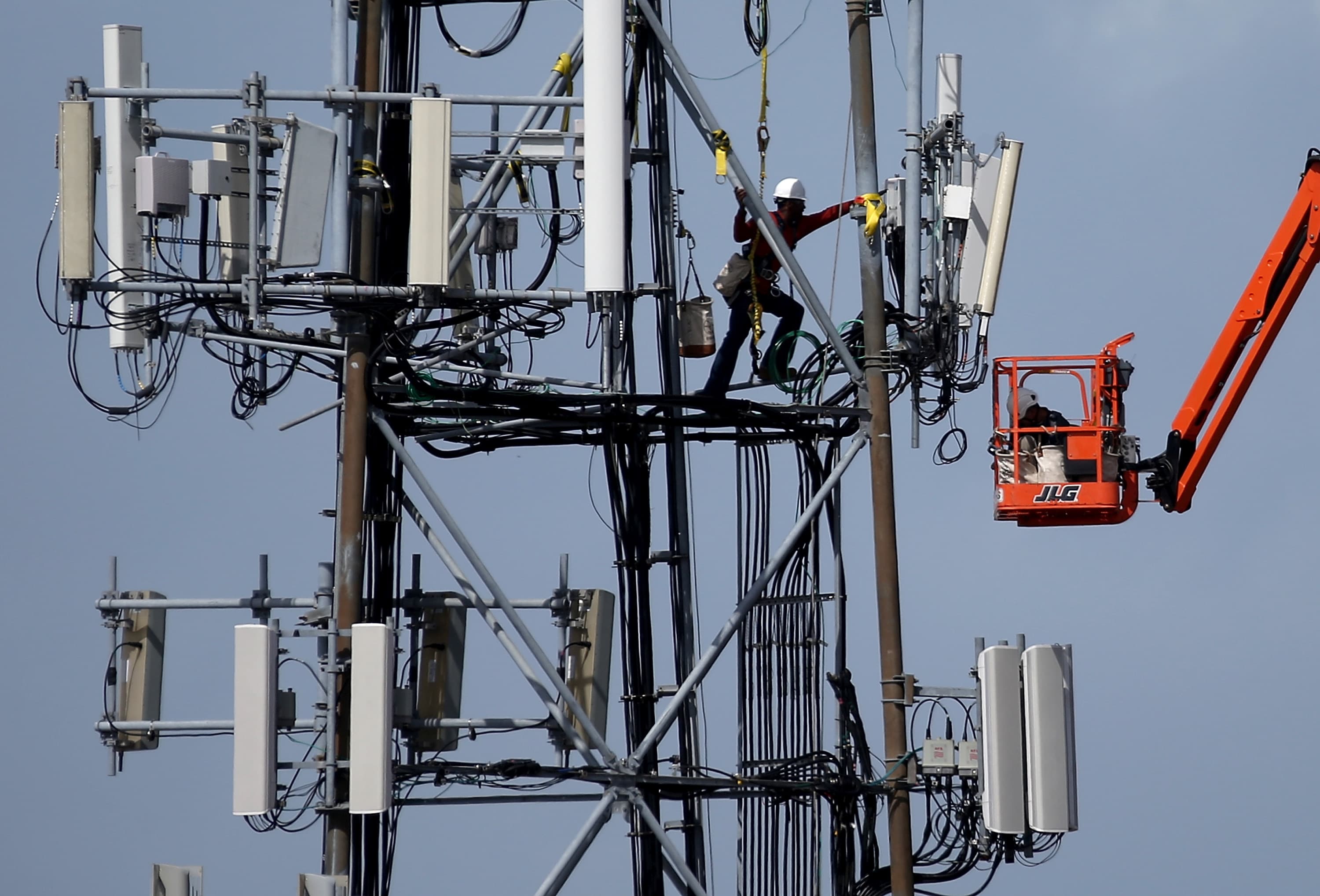The drive to make 5G a reality has led to a surge in demand for tower climbers - 4 minutes read

Fifth-generation cellular wireless — better known as 5G — is beginning to come to life, with launches from major carriers like Verizon and AT&T. The technology, which promises increased speed and capacity for greater connectivity, is expected to fully take shape in the years to come.
Today, information communication technology giant Ericsson is putting the infrastructure in place that is needed to make 5G a reality, and tower climbers like Jordan Robinson are in high demand to lay the groundwork.
"I help you have cell service in hard-to-reach places," Robinson, a tower technician associate and Marine Corps veteran said. "Tower climbing is fun — you get to see miles and miles, just forest. Or you think you're in the middle of nowhere and climb 200 feet in the air, and there's a whole town not five minutes away. I like enjoying the views."
Ericsson currently has some 350 towers across the U.S. already in place, and the company is expecting to grow that number to 1 million in the next four years as it partners with the major U.S. carriers for 5G nationwide.
"Tower climbers are really the backbone behind the network. They climb infrastructures, whether its rooftops or major towers, and they actually assemble and construct the equipment on top of these cell towers that we all use every day," said Kevin Zvokel, head of networks at Ericsson North America.
Ericsson said global mobile data traffic is expected to grow eight times by the end of 2023, so there's a real need for more efficient technologies. The company predicts that by 2023, 20% of the global population will be covered by 5G, with 1 billion 5G subscriptions, 9 billion mobile subscriptions, and 20 billion connected internet of things devices.
Experts and industry advocates said 5G has the power to transform much more than just the technology space.
Dell Technologies CEO Michael Dell told CNBC earlier this week that he is "giddy with excitement" about 5G and its capability to move data hundreds or thousands of times faster.
"I think this is going to unlock a wave of innovation and new business models across all sorts of industries," Dell said, adding, "the amount of data created, the amount of infrastructure required, and then the need to be able to analyze that data in real time and turn it into useful insights and actions is a tremendous opportunity."
Verizon CEO Hans Vestberg said it plans to be in more than 30 markets with 5G this year, adding that going from 4G to the new network is like a "quantum leap" that will unlock innovation thanks to better speeds and capacity.
At an event for 5G held in April at the White House, President Donald Trump was joined by Federal Communications Commission Chairman Ajit Pai. Trump said that the race to deploy 5G in the U.S. is a "must win." He added that due to investment from wireless carriers and demand, some 3 million American jobs stand to be created from the rollout. The president said the approach in the U.S. is both "private sector driven and led."
Ericsson is certainly leading that charge. Zvokel said its competing in the tight labor market with key benefits like 401(k) plans and tuition reimbursement. Entry-level tower climbers can make around $40,000 a year doing a job that can be admittedly challenging. The company recruits from vocational schools and also works actively to recruit veterans, which make up about 30% of its workforce.
"It's a tough job — our climbers spend long days in remote areas building infrastructure," Zvokel said. "So they need a passion to be in this environment, to work with technology, to work in unusual situations — we have towers that are 700 feet or more in the air. You have to have a little bit of passion ... to go out and build these networks."
That adventure can be well worth it for those up to the task. "The best part of my job is probably getting to travel as much as I've gotten to over the years, and getting to build things I never thought I'd be building," said Jordan Robinson, a top hand at Ericsson. "You are constantly learning something new — it's a new industry and it's changing so fast."
Watch: Jim Cramer revisits his top stock picks for the 5G rollout